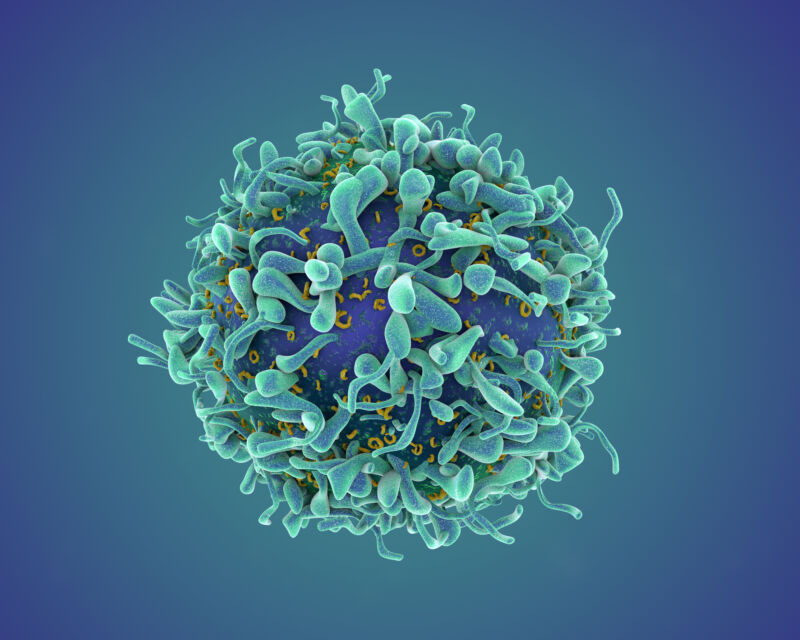One of the adaptive immune system’s primary jobs is recognizing foreign substances in our bodies and unceremoniously rejecting them by eliciting inflammation. So the fact that it lets about 100 grams of assorted foreign animal and plant proteins pass through our digestive systems every day with nary a peep is curious—food allergies are an exception.
The most common explanation for this “oral tolerance” is that immune cells that react to proteins in food are generated but are preferentially killed or somehow inactivated. But most of the experiments leading to this conclusion were done with transgenic mice with a severely depleted T cell repertoire and thus lacked a normal immune response. New work published in Nature uses mice with a normal, functioning immune system to recheck this result.
The mice were reared on a gluten-free diet and then challenged with a portion of one of the gluten proteins called gliadin—a protein known to elicit a T cell response.
(Gliadin is the half of gluten that induces celiac disease; it promotes the generation of antibodies that react to a native protein in our guts that looks a bit like gliadin. Gluten sensitivities and intolerance can be induced by gliadin as well as other proteins and saccharides in wheat. Wheat allergies are caused by gliadins and other proteins in wheat, but allergies are mediated through a different arm of the immune system.)
A week after the mice started eating the gliadin peptide, their guts saw a modest increase in the T cells that responded to it. A few of these T cells could prompt a weak antibody response, but many were regulatory T cells (Treg cells), which are immunosuppressive. Others seemed to be part of a population distinct from any well-understood T cell lineages but could convert into Treg cells. None of these T cells could incite inflammation. A similar response was seen when the mice were fed a couple of other pieces of foreign proteins.
The authors suggest that under normal circumstances, the food-responsive T cells differentiate down this poorly defined “lineage-negative” path based on local immunosuppressive signals in the gut and, so, do not trigger pathology in response to food.
So why do food allergies happen at all? The researchers speculate that, if inflammation is already present the first time you eat something, more active T cells may develop and cause pathology.
Nature, 2022. DOI: 10.1038/s41586-022-04916-6



3175x175(CURRENT).thumb.jpg.b05acc060982b36f5891ba728e6d953c.jpg)

Recommended Comments
There are no comments to display.
Join the conversation
You can post now and register later. If you have an account, sign in now to post with your account.
Note: Your post will require moderator approval before it will be visible.